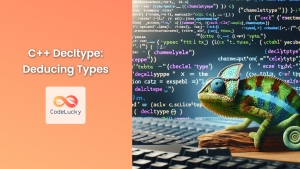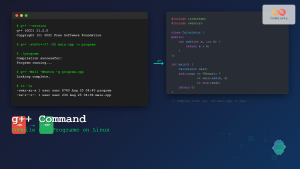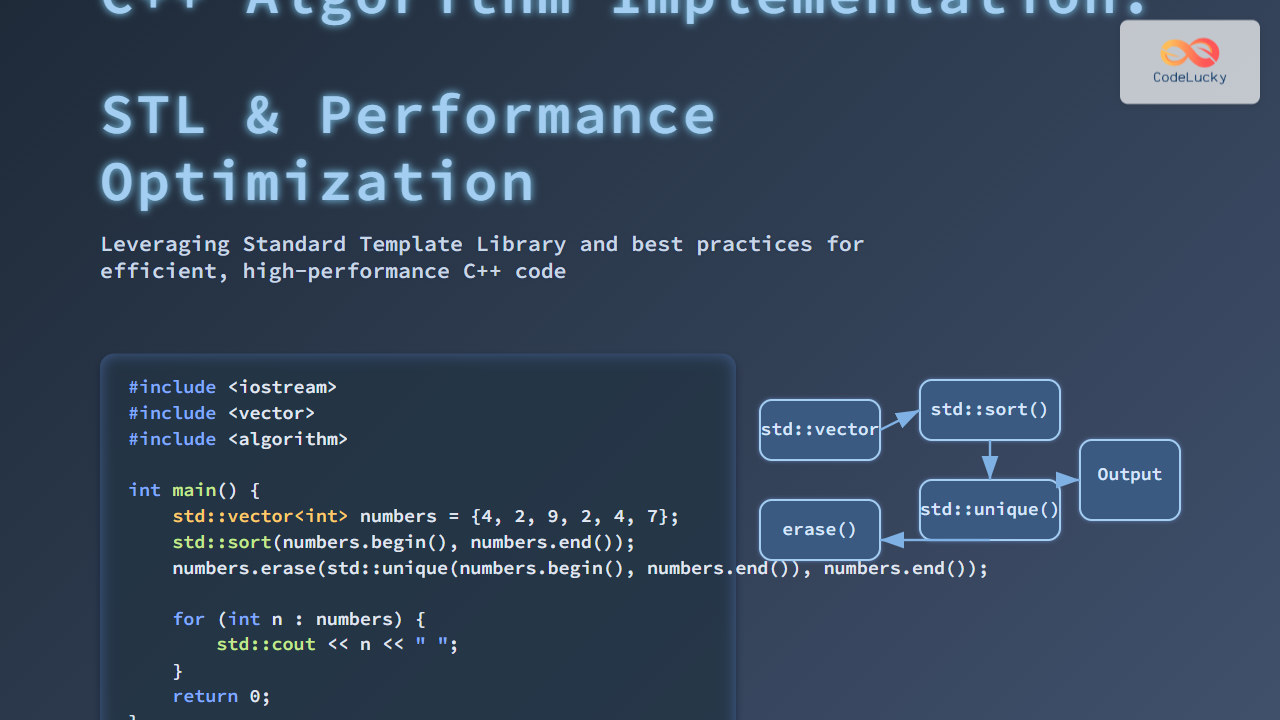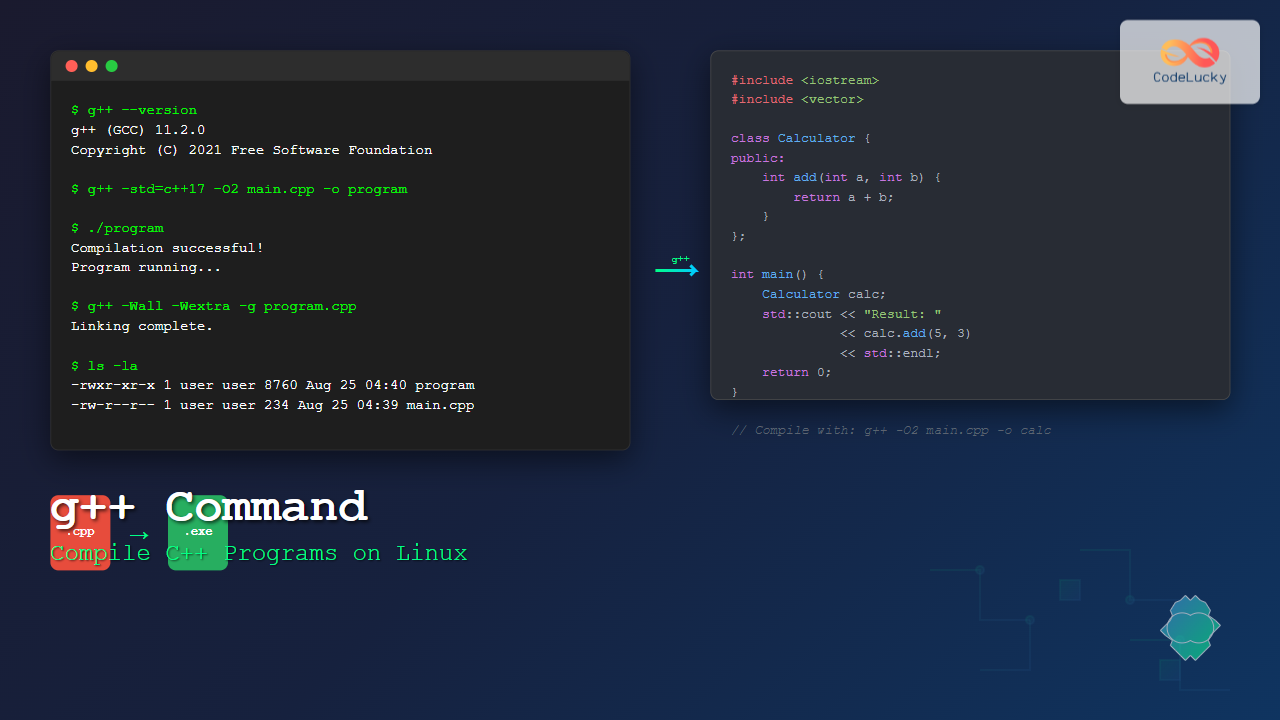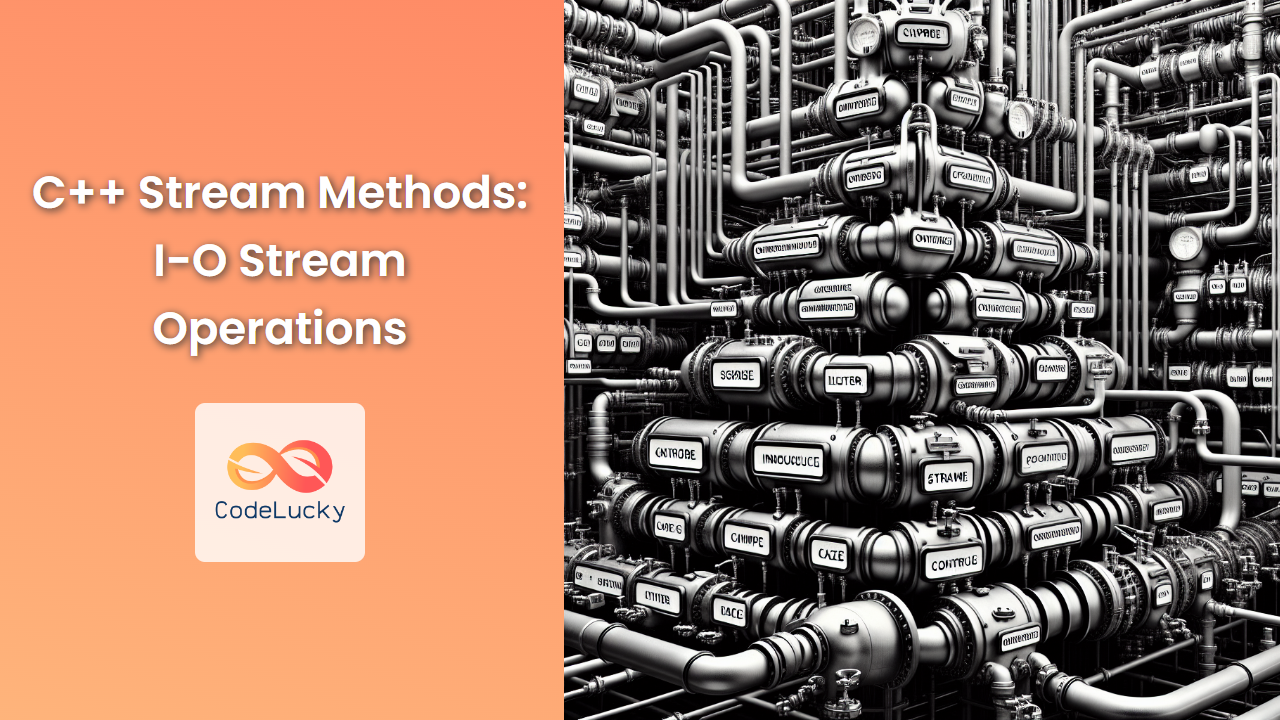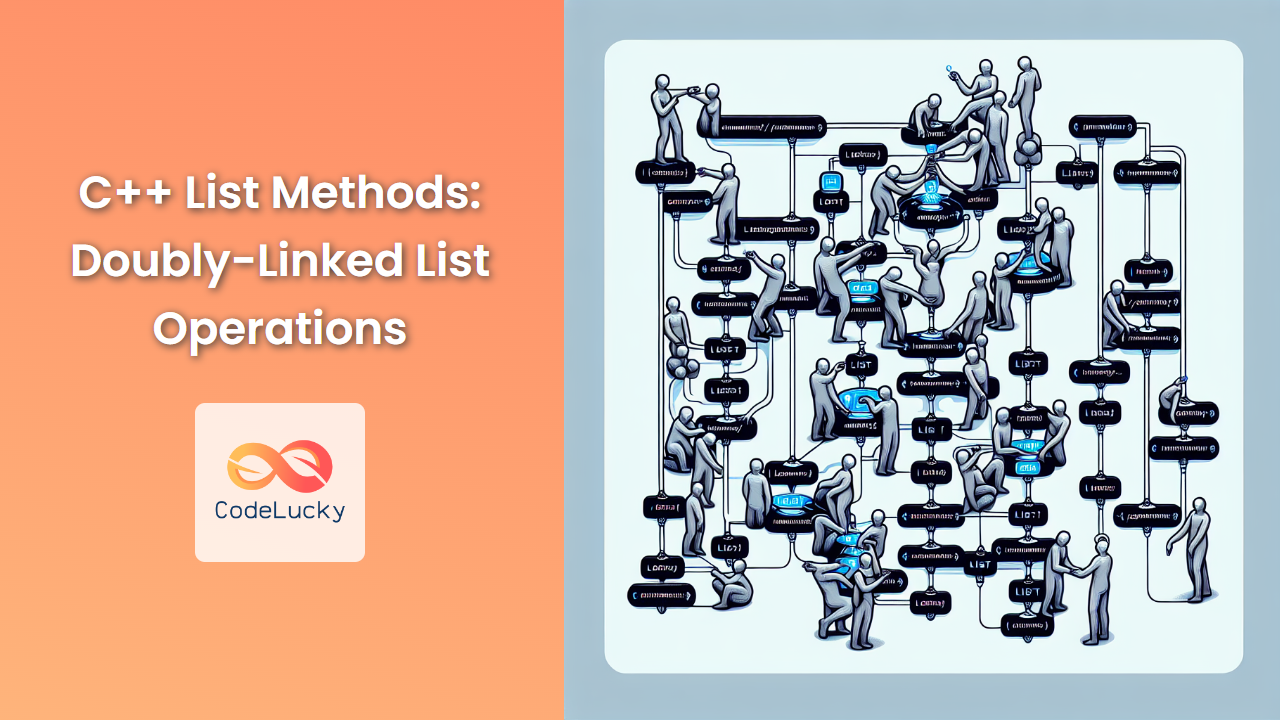In the ever-evolving landscape of C++, the constexpr keyword stands out as a powerful feature that enables developers to perform computations at compile-time. This capability not only enhances performance but also allows for more robust and efficient code. In this comprehensive guide, we'll dive deep into the world of constexpr, exploring its intricacies, benefits, and practical applications.
Understanding constexpr
The constexpr keyword, introduced in C++11, is a declaration specifier that essentially tells the compiler that the value of an expression can be evaluated at compile-time. This means that the computation happens before the program even starts running, potentially leading to significant performance improvements.
🔍 Key Point: constexpr is not just for constants; it's for expressions that can be computed at compile-time.
Let's start with a simple example to illustrate the basic usage of constexpr:
constexpr int square(int x) {
return x * x;
}
int main() {
constexpr int result = square(5);
return result;
}
In this example, the square function is declared as constexpr, allowing it to be evaluated at compile-time. The result variable is also declared as constexpr, ensuring that its value is computed during compilation.
constexpr Functions
One of the most powerful applications of constexpr is in function declarations. A constexpr function can be used in constant expressions if its arguments are constant expressions and it satisfies certain criteria.
Here's a more complex example demonstrating a constexpr function for calculating factorials:
constexpr unsigned long long factorial(unsigned int n) {
return (n <= 1) ? 1 : n * factorial(n - 1);
}
int main() {
constexpr unsigned long long fact5 = factorial(5);
constexpr unsigned long long fact10 = factorial(10);
static_assert(fact5 == 120, "Factorial of 5 is incorrect");
static_assert(fact10 == 3628800, "Factorial of 10 is incorrect");
return 0;
}
In this example, the factorial function is computed at compile-time for both fact5 and fact10. The static_assert statements verify the correctness of these computations, and any errors would be caught during compilation.
🚀 Pro Tip: Use static_assert with constexpr functions to perform compile-time checks and catch errors early in the development process.
constexpr Variables
constexpr variables are implicitly const and must be initialized with a constant expression. They're particularly useful for creating compile-time constants that can be used in other constant expressions.
Let's look at an example that demonstrates the use of constexpr variables in array declarations:
constexpr int SIZE = 5;
constexpr int MULTIPLIER = 2;
constexpr int multiply(int x) {
return x * MULTIPLIER;
}
int main() {
constexpr int array[SIZE] = {
multiply(1),
multiply(2),
multiply(3),
multiply(4),
multiply(5)
};
for (int i = 0; i < SIZE; ++i) {
std::cout << "array[" << i << "] = " << array[i] << std::endl;
}
return 0;
}
Output:
array[0] = 2
array[1] = 4
array[2] = 6
array[3] = 8
array[4] = 10
In this example, we use constexpr variables SIZE and MULTIPLIER, along with a constexpr function multiply, to initialize an array at compile-time.
constexpr and User-Defined Types
constexpr can also be used with user-defined types, allowing for complex compile-time computations involving custom objects.
Here's an example of a constexpr constructor and member function in a user-defined type:
class Point {
private:
int x, y;
public:
constexpr Point(int x_val, int y_val) : x(x_val), y(y_val) {}
constexpr int getX() const { return x; }
constexpr int getY() const { return y; }
constexpr Point operator+(const Point& other) const {
return Point(x + other.x, y + other.y);
}
};
constexpr Point midpoint(const Point& p1, const Point& p2) {
return Point((p1.getX() + p2.getX()) / 2, (p1.getY() + p2.getY()) / 2);
}
int main() {
constexpr Point p1(1, 2);
constexpr Point p2(3, 4);
constexpr Point mid = midpoint(p1, p2);
static_assert(mid.getX() == 2 && mid.getY() == 3, "Midpoint calculation error");
return 0;
}
In this example, we define a Point class with constexpr constructor and member functions. We then use these to perform compile-time calculations, including finding the midpoint between two points.
💡 Insight: Using constexpr with user-defined types allows for complex compile-time computations that can significantly optimize performance-critical code.
constexpr if (C++17)
C++17 introduced constexpr if, which allows for compile-time conditional statements. This feature is particularly useful for template metaprogramming and for writing code that adapts to different types or compile-time conditions.
Here's an example demonstrating constexpr if:
#include <iostream>
#include <type_traits>
template<typename T>
void print_type_info(const T& value) {
if constexpr (std::is_integral_v<T>) {
std::cout << "This is an integral type with value: " << value << std::endl;
} else if constexpr (std::is_floating_point_v<T>) {
std::cout << "This is a floating-point type with value: " << value << std::endl;
} else {
std::cout << "This is neither integral nor floating-point." << std::endl;
}
}
int main() {
print_type_info(42);
print_type_info(3.14);
print_type_info("Hello");
return 0;
}
Output:
This is an integral type with value: 42
This is a floating-point type with value: 3.14
This is neither integral nor floating-point.
In this example, constexpr if is used to select different code paths based on the type of the argument passed to print_type_info. This selection happens at compile-time, resulting in efficient code generation.
Limitations and Considerations
While constexpr is a powerful feature, it comes with certain limitations and considerations:
-
Complexity:
constexprfunctions must be relatively simple. They cannot containgotostatements, non-literal variables, or try-catch blocks. -
Side Effects:
constexprfunctions should not have side effects, as they may be evaluated at compile-time or runtime depending on the context. -
Recursion: Recursive
constexprfunctions are allowed, but the recursion must be able to terminate at compile-time. -
Standard Library Support: Not all standard library functions are
constexpr. Check the documentation forconstexpr-enabled functions.
Here's an example illustrating some of these limitations:
#include <iostream>
constexpr int safe_divide(int a, int b) {
return (b != 0) ? (a / b) : 0;
}
// This function is not constexpr due to the use of std::cout
int print_and_return(int x) {
std::cout << "Value: " << x << std::endl;
return x;
}
int main() {
constexpr int result1 = safe_divide(10, 2); // OK
constexpr int result2 = safe_divide(10, 0); // OK, returns 0
// Error: print_and_return is not constexpr
// constexpr int result3 = print_and_return(5);
std::cout << "Result 1: " << result1 << std::endl;
std::cout << "Result 2: " << result2 << std::endl;
return 0;
}
Output:
Result 1: 5
Result 2: 0
In this example, safe_divide is a valid constexpr function, while print_and_return cannot be constexpr due to its use of std::cout.
Best Practices
To make the most of constexpr, consider the following best practices:
-
Use
constexprfor Known Compile-Time Computations: If you know a value or computation can be determined at compile-time, make itconstexpr. -
Prefer
constexprover#define:constexprprovides type safety and better integration with the C++ type system. -
Combine with
static_assert: Usestatic_assertto perform compile-time checks on yourconstexprcomputations. -
Be Mindful of Compile Times: Complex
constexprcomputations can increase compile times. Use judiciously in large projects. -
Leverage in Template Metaprogramming:
constexprcan greatly simplify and enhance template metaprogramming techniques.
Conclusion
constexpr is a powerful feature in modern C++ that enables developers to perform computations at compile-time, leading to more efficient and robust code. From simple constant expressions to complex user-defined types and compile-time conditionals, constexpr offers a wide range of possibilities for optimization and metaprogramming.
By understanding the capabilities and limitations of constexpr, you can write more efficient, safer, and more expressive C++ code. As the language continues to evolve, constexpr remains a key feature for developers looking to push the boundaries of compile-time computation and optimization.
Remember, the journey to mastering constexpr is ongoing. Experiment with these concepts in your own code, and you'll discover new and innovative ways to leverage compile-time computations in your C++ projects.





